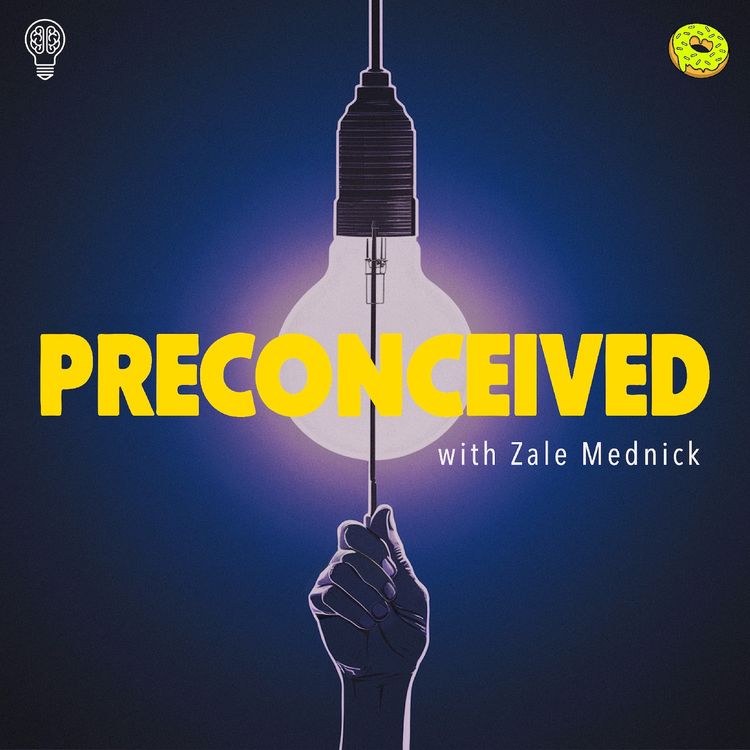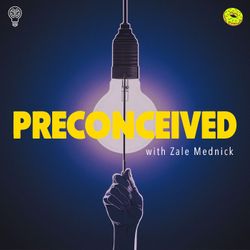Share

Preconceived
Fall of the Aztecs
The Aztec Empire famously fell following the arrival of the Europeans in the 16th century. Much of what we know about the Aztecs – including their rise, the nature of the empire, and its eventual fall, comes strictly from European accounts. But what did the Aztecs themselves think? The narrative has almost solely been shaped by the European perspective – but how did the Aztecs view the Europeans who eventually conquered them? Professor Camilla Townsend joins the podcast.
Camilla's Book - Fifth Sun
https://www.amazon.ca/Fifth-Sun-New-History-Aztecs/dp/0190673060/ref=asc_df_0190673060/?tag=googleshopc0c-20&linkCode=df0&hvadid=411041496657&hvpos=&hvnetw=g&hvrand=2406240501790207548&hvpone=&hvptwo=&hvqmt=&hvdev=c&hvdvcmdl=&hvlocint=&hvlocphy=9000956&hvtargid=pla-715823711027&psc=1
This episode is sponsored by Discover More Podcast - https://www.listennotes.com/podcasts/discover-more-benoit-kim-w1KlycAfQGB/
More episodes
View all episodes

300. The Wokeness Debate - Unpacking Gender Identity and Cultural Shifts
01:05:15|In this 300th episode of Preconceived, we dive deep into the intricate world of wokeness—a term that has sparked both fervent support and intense debate. What does it truly mean to be 'woke'? How has this cultural phenomenon reshaped our conversations around identity, free speech, and societal norms? Join us as we unravel these questions with our guest, Eric Kaufman, who brings a wealth of knowledge and a critical eye to the discussion. Check out Eric's latest book Third Awokening at https://www.amazon.ca/Third-Awokening-12-Point-Progressive-Extremism/dp/B0D459XT8N
299. The Essence of Invention
46:31|In this episode of Preconceived, Zale sits down with Dr. Kieran Murphy, a renowned inventor and professor of radiology, to explore the essence of invention and creativity in medicine. Dr. Murphy shares his journey from medical innovations to his thoughts on the socio-economic factors that influence creativity. Discover how invention is not just about genius but a mindset, and learn about the challenges and triumphs in the world of medical creativity. Dr. Kieran Murphy's Book - https://www.amazon.ca/Essence-Invention-Medicine-Joy-Creativity/dp/1459754034
298. Forced Fatherhood - Male Reproductive Rights
59:04|In this episode of the podcast, Zale has a discussion with Laurie Shrage about the often-overlooked topic of male reproductive rights. The conversation delves into the complexities surrounding male reproductive autonomy, contrasting it with the more widely discussed female reproductive rights. Ultimately, this episode gets at the question of whether or not men should be able to opt out of fatherhood if it is early on enough in the pregnancy when the female could still get an abortion. Laurie highlights historical legal cases like Roe v. Wade and Gomez v. Perez, exploring their implications on both male and female reproductive responsibilities.
297. Good Vibrations - The Neuroscience of Music
54:22|In this episode of Preconceived, Zale explores the profound impact of music on our emotions and well-being with guest Stefan Kölsch, a renowned psychologist and neuroscientist. They discuss the science behind music's ability to evoke emotions, enhance mood, and even offer therapeutic benefits. Stefan shares insights from his book "Good Vibrations," highlighting how music can be used intentionally to foster mental resilience and social connection.Good Vibrations - https://www.cambridge.org/core/books/good-vibrations/C20B64B04D50BBC208503E84F9C84772
296. BDSM - More Common Than You Think
49:32|In this episode of Preconceived, Zale delves into the often misunderstood world of BDSM with guest Alicia Walker, an associate professor of sociology. They explore the complexities of bondage, discipline, dominance, submission, sadism, and masochism, discussing why these practices appeal to many, and how they contribute to personal happiness. Zale tries to understand why the idea of being humiliated would appeal to some, while the act of inflicting pain would appeal to others. Alicia shares lessons learned from researching and writing her latest book, 'Bound by BDSM'. Bound by BDSM - https://www.bloomsbury.com/ca/bound-by-bdsm-9798881803032/
Taylor Swift - In a League of Her Own
50:04|Taylor Swift is arguably the most famous person in the world – a pop star the likes of whom many of us haven’t seen in our lifetimes. Especially over the past year with the release of her latest album Midnights and her record-breaking The Eras Tour, it’s not crazy to wonder if what we are witnessing right now is somewhat analogous to the Beatlemania of the 1960s. So what exactly is the phenomenon of Taylor Swift? Why has she risen to the heights that she has and captivated so many people like few other artists have before her? Is this truly a special pop culture moment, or is it perhaps being overstated? Music industry veteran Ralph Jaccodine joins the podcast.
295. Achieving Elite Performance
48:25|In this episode of Preconceived, Zale interviews Dr. Cassidy Preston, a high-performance coach who works with professional athletes and surgeons. They discuss the importance of mindset, dealing with stress, and achieving high performance in high-pressure environments. Cassidy shares insights on the inside-out approach to mindset, the role of acceptance, and the significance of routines and preparation.Learn more about Dr. Cassidy Preston -https://drcassidypreston.com/
294. History's Famous Druggies
50:01|In this episode, Zale is joined by Sam Kelly, author of 'Human History on Drugs', to explore the complex morality surrounding drug use throughout history. They discuss the historical context of drug perception, the stigmatization of drug use, and the philosophical views on drugs. The conversation delves into notable historical figures such as Freud, Marcus Aurelius, Shakespeare, and Alexander the Great, examining their relationships with drugs and how these experiences shaped their legacies. Human History on Drugs - https://www.penguinrandomhouse.com/books/747457/human-history-on-drugs-by-sam-kelly/
293. The Myths of Modern Love
50:30|In this episode, Zale engages with social psychologist Pamela Regan to explore the complexities of modern love, including the romantic ideal, different love styles, and the impact of societal expectations on relationships. They discuss the validity of arranged marriages, the burden of expecting one partner to fulfill all emotional needs, and the importance of recognizing the fluctuations in love and commitment over time. The conversation emphasizes that love is multifaceted and can take many forms, encouraging listeners to embrace their unique experiences in love.Learn more about Pamela Regan at https://www.calstatela.edu/faculty/dr-pamela-reganShownotes00:00The Evolution of Love and Marriage01:24Modern Love: A Complex Landscape02:41The Many Faces of Love05:20Passionate vs. Companionate Love08:30Expectations in Romantic Relationships11:33The Burden of One Partner14:15Finding Balance in Love23:49Navigating Modern Relationships and Boundaries25:58Understanding Arranged Marriages in Contemporary Society31:15Findings on Commitment and Satisfaction in Marriages35:38The Role of Social Influence in Finding Love41:50Defining Love: Beyond Feelings to Choices and Actions